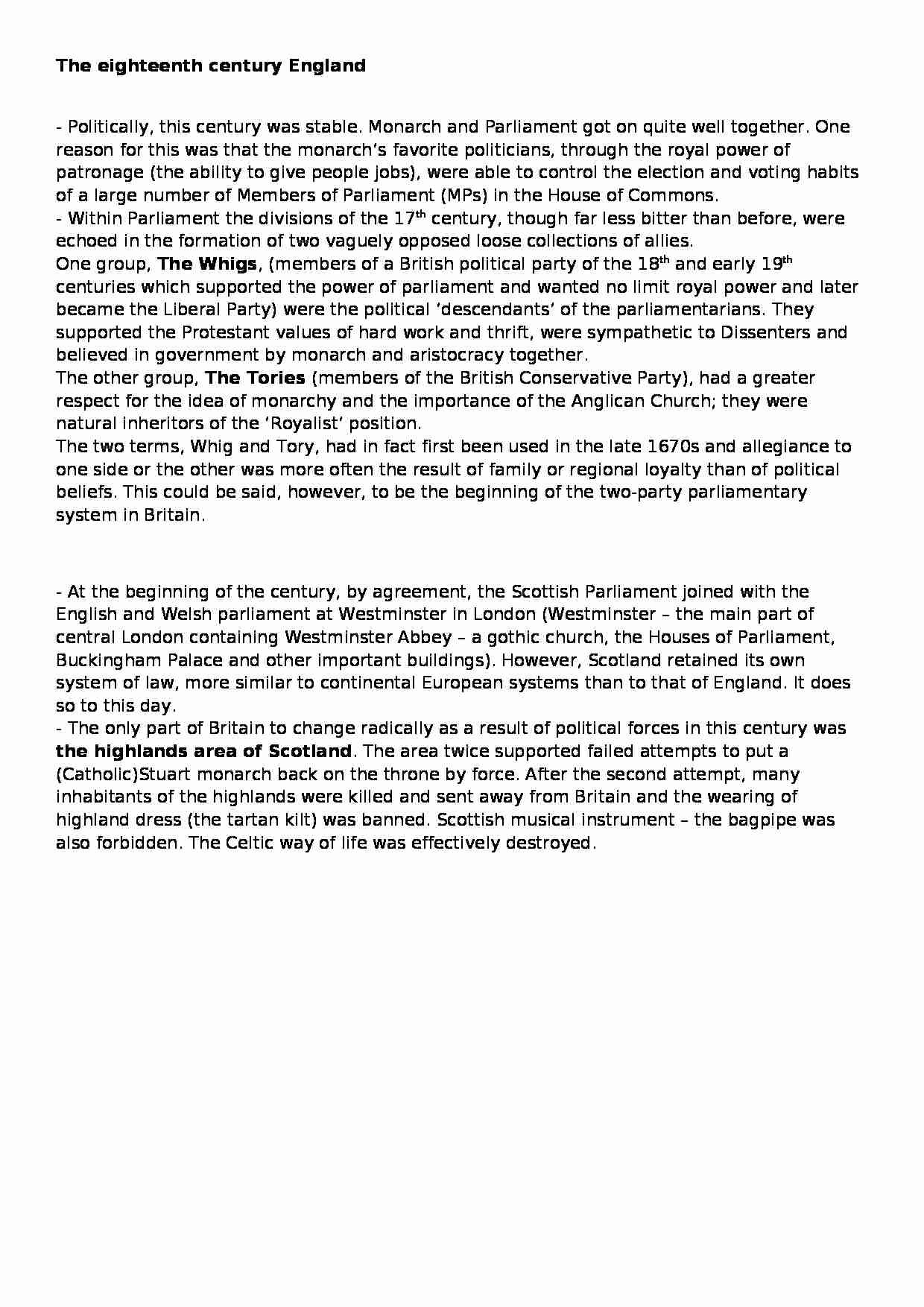
The eighteenth century England - Politically, this century was stable. Monarch and Parliament got on quite well together. One reason for this was that the monarch's favorite politicians, through the royal power of patronage (the ability to give people jobs), were able to control the election and voting habits of a large number of Members of Parliament (MPs) in the House of Commons. - Within Parliament the divisions of the 17th century, though far less bitter than before, were echoed in the formation of two vaguely opposed loose collections of allies. One group, The Whigs, (members of a British political party of the 18th and early 19th centuries which supported the power of parliament and wanted no limit royal power and later became the Liberal Party) were the political `descendants' of the parliamentarians. They supported the Protestant values of hard work and thrift, were sympathetic to Dissenters and believed in government by monarch and aristocracy together. The other group, The Tories (members of the British Conservative Party), had a greater respect for the idea of monarchy and the importance of the Anglican Church; they were natural inheritors of the `Royalist' position. The two terms, Whig and Tory, had in fact first been used in the late 1670s and allegiance to one side or the other was more often the result of family or regional loyalty than of political beliefs. This could be said, however, to be the beginning of the two-party parliamentary system in Britain. - At the beginning of the century, by agreement, the Scottish Parliament joined with the English and Welsh parliament at Westminster in London (Westminster - the main part of central London containing Westminster Abbey - a gothic church, the Houses of Parliament, Buckingham Palace and other important buildings). However, Scotland retained its own system of law, more similar to continental European systems than to that of England. It does so to this day. - The only part of Britain to change radically as a result of political forces in this century was the highlands area of Scotland. The area twice supported failed attempts to put a (Catholic)Stuart monarch back on the throne by force. After the second attempt, many inhabitants of the highlands were killed and sent away from Britain and the wearing of highland dress (the tartan kilt) was banned. Scottish musical instrument - the bagpipe was also forbidden. The Celtic way of life was effectively destroyed.
... zobacz całą notatkę



Komentarze użytkowników (0)